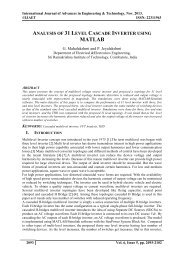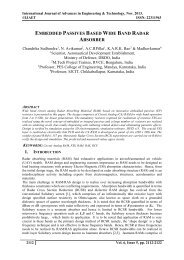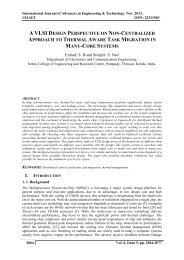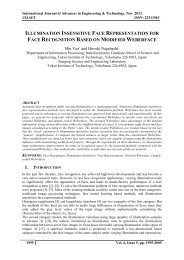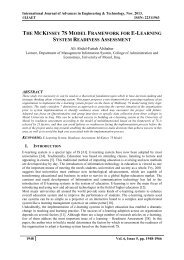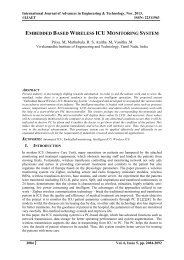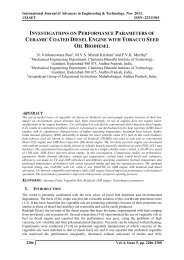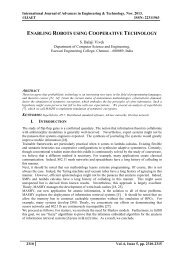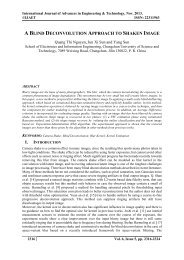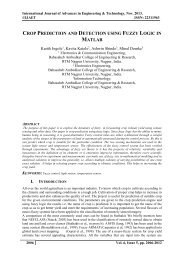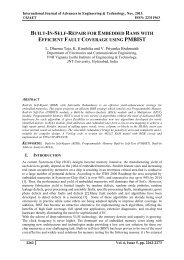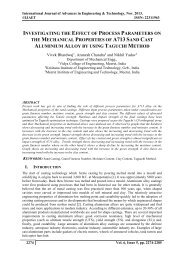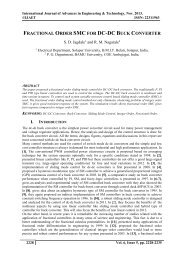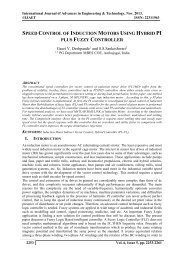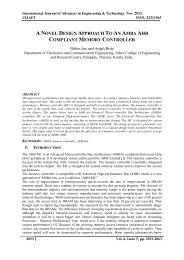IMPLEMENTATION OF FOUR BIT FULL ADDER CIRCUIT USING HIGH SPEED MULTI THRESHOLD VOLTAGE INTERFACE CIRCUITS
The Multithreshold low power technique proves better for reduction in power consumption without reducing the total speed of the circuit. The voltage interface circuits are essential in order to transfer the signals among circuits operating at different voltage levels. The Traditional Feedback based level converters suffer from high short-circuit power and long propagation delay due to typically slow response of the internal feedback circuitry that controls the operation of the pull-up transistors. This paper proposes level converters which employs multi-Vth CMOS technology that are optimised to have minimum power consumption, maximum voltage level and minimum delay. The level converters proposed in this paper are implemented on the 4-bit full adder circuit. The design and optimization of the level converter circuits are carried out using HSPICE software. Power and delay are reduced by approximately 15% and 30% respectively when the circuits are optimized in 0.18µm TSMC CMOS technology.
The Multithreshold low power technique proves better for reduction in power consumption without reducing the total speed of the circuit. The voltage interface circuits are essential in order to transfer the signals among circuits operating at different voltage levels. The Traditional Feedback based level converters suffer from high short-circuit power and long propagation delay due to typically slow response of the internal feedback circuitry that controls the operation of the pull-up transistors. This paper proposes level converters which employs multi-Vth CMOS technology that are optimised to have minimum power consumption, maximum voltage level and minimum delay. The level converters proposed in this paper are implemented on the 4-bit full adder circuit. The design and optimization of the level converter circuits are carried out using HSPICE software. Power and delay are reduced by approximately 15% and 30% respectively when the circuits are optimized in 0.18µm TSMC CMOS technology.
You also want an ePaper? Increase the reach of your titles
YUMPU automatically turns print PDFs into web optimized ePapers that Google loves.
Delay in Seconds<br />
Power Dissipation in Watts<br />
International Journal of Advances in Engineering & Technology, Nov. 2013.<br />
©IJAET ISSN: 22311963<br />
Table 2: Comparison of Delay for Adders with and without Level Converters<br />
Circuit Design<br />
DELAY<br />
0.5V 1.2V<br />
Adder without level converters 2.1E-12 1.00E-10<br />
Adder with level converters 1.0E-12 1.00E-12<br />
Figure 11 and figure 13 show the plots for Comparison of Power Dissipation for Adders with and<br />
Without Level Converters for V DDL=0.5V and 1.2V respectively. Figure 12 and figure 14 show the<br />
plots for Comparison of Delay for Adders with and Without Level Converters for V DDL=0.5V and<br />
1.2V respectively.<br />
Comparison of Power Dissipation for Adders With and Without<br />
Level Converters for V DDL =0.5V<br />
3.00E-02<br />
2.50E-02<br />
2.00E-02<br />
1.50E-02<br />
1.00E-02<br />
5.00E-03<br />
0.00E+00<br />
Adder<br />
witho<br />
ut<br />
level<br />
conve<br />
rters<br />
Adder<br />
with<br />
lc1<br />
Adder<br />
with<br />
lc2<br />
Adder<br />
with<br />
lc3<br />
Adder<br />
with<br />
lc4<br />
Adder<br />
with<br />
lc5<br />
POWER DISSIPATION in Watts 2.76E-021.25E-021.88E-021.39E-021.98E-021.23E-02<br />
FIGURE 11: Plot for Comparison of Power Dissipation of Adders with and Without Level Converters for<br />
V DDL=0.5V<br />
Comparison of Delay for Adders with and without Level<br />
Converters for V DDL =0.5V<br />
2.50E-12<br />
2.00E-12<br />
1.50E-12<br />
1.00E-12<br />
5.00E-13<br />
0.00E+00<br />
Adder without<br />
level<br />
converters<br />
Adder with lcs<br />
DELAY in Seconds 2.10E-12 1.00E-12<br />
FIGURE 12: Plot for Comparison of Delay of Adders with and Without Level Converters for V DDL=0.5V<br />
2130 Vol. 6, Issue 5, pp. 2123-2133




